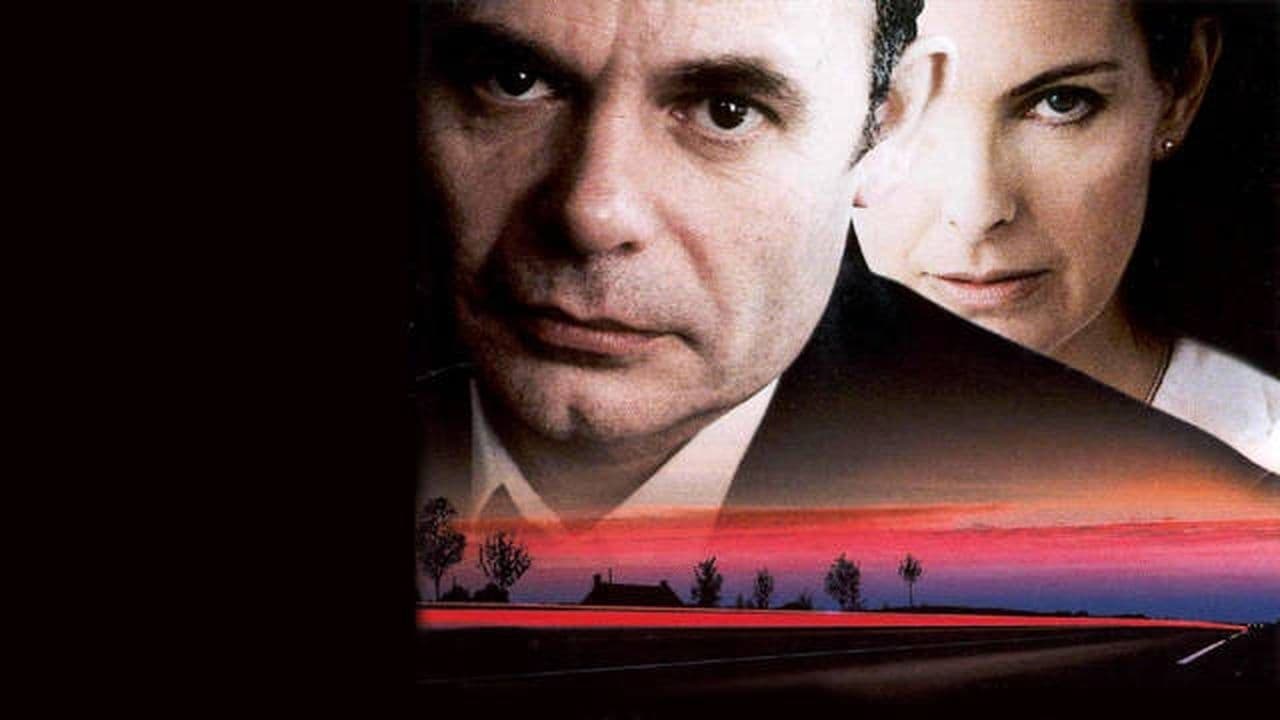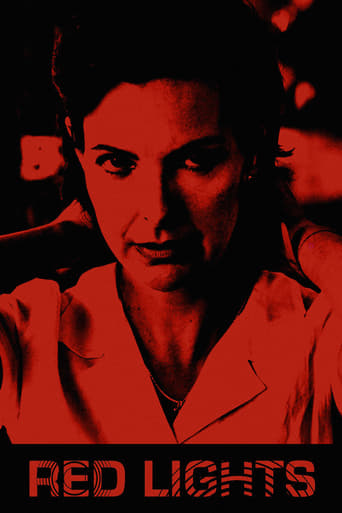

How many Simenon 's novels have been transferred to the screen? Probably more than you can think of for there were already plenty of them in the thirties.Some were even remade(Duvivier's masterpiece "Panique" was remade as "M.Hire" ).In 2004,it's funny to see Simenon's characters using computers.This movie owes a lot to its two actors:the always reliable Darroussin and Carole Bouquet who in fact has only a supporting part,her male co-star being on the screen twice as long as her.A couple whose marriage seems on the rock hit the road .They are to pick up their children in their holiday camp.This is a road movie ,the action taking place around a highway between Paris , Tours and Poitiers and ending in Chatellerault.The man has become a heavy drinker cause he knows his wife does not love him anymore .She disappears in the night.He is told she's taken a taxi to get to the railway station to travel by train.The desperate husband takes a(not very sweet) hitch- hiker aboard .At dawn,it seems that something very horrible happened during the night.It does not really renew Simonesque adaptations (and I must admit I could name at least ten films better than this one,even if I did not include the excellent Gabin/Maigret/Delannoy films of the fifties) but it's a good film ,depicting a bleak inhuman highway ,high anxiety (Darroussin gives at least ten phone calls in ten minutes),and proof positive that from evil,something which looks like love can be born again.
... View MoreWe are all supposed to be shaking in our seats. After all, the director of this contrived and artificial piece of nonsense is confident that he has overwhelmed us with shock and horror. The problem is that nothing in the plot is remotely credible. Indeed, it is frankly impossible. Carole Bouquet and her husband are driving south from Paris and a convict has escaped from a prison. Husband and wife split up after a quarrel. One takes the train and the other drives. We are expected to believe that out of the sixty million people in France, the escaped convict on the same evening encounters only these two, separately! He rapes the wife on the train and tries to murder the husband in his car. He does these two things in separate places more or less at the same time. Surely this is carrying surrealism too far. Are we not entitled to the respect of some semblance of rationality in the plot of a film which is supposed to be a 'suspense' film? But it gets worse. The couple are supposed to be driving south to pick up their two children, aged 8 and 10, from summer camp. Despite this, they quarrel over nothing and the wife abandons the car. As for the husband, he has consumed several bottles of whiskey and numerous beers, is totally drunk, and is driving suicidally. What a way to pick up the kids! What is more astonishing is that we are meant to feel sympathy for the idiotic and irresponsible husband because, poor fellow, the convict whom he first approaches and then provokes turns on him. What a shame the convict didn't kill the useless twerp. What advanced state of decadence have the French media class entered now, when in film after film we are all expected to shed crocodile tears for despicable and loathsome characters? And this film was nominated for a prize at the Berlin Festival! What is going on? Has everybody gone completely raving mad? This film is not worth watching, and yet there are plenty of people around praising it. The characters are inhuman, and the plot is absurd. Somehow, somewhere, something very deep is going wrong with filmmakers in France, and their critics and festival juries. I called attention to this in my review of 'L'Enfant'. When the wholesome and delightful film 'Amelie' came out a few years ago, a chorus of French critics and media folk howled in protest about it and heaped abuse upon it in the press. There is a sickness, a deeply serious and growing sickness, amongst certain levels of the French media class. All sense of morality has been thrown overboard and a howling intolerance of anything wholesome arises from a baying pack of corrupt and arrogant media insiders. This is all very worrying for those like myself who love French culture and wish it to continue in some form which can continue to command some respect.
... View More"Feux rouges" is an interesting thriller about a man searching for his wife. The plot turns when he meets a criminal and takes him up with his car on a night trip to Bordeaux. The film is thrilling until the end because you do not know what happens next. The audience is misled by some red herrings that could have been pulled out by Hitchcock. The herrings are no plot holes because the whole film is a dream. It begins with the man sitting in a bar waiting for his wife. Imagine you put this scene at the end of the movie with the man waking up out of a short sleep. It also explains the improbable happy ending and the dreamlike pictures of the night trip.Nevertheless, it could have been a better movie. Based on a story by Georges Simeon it lacks of character building. The characters are one-sided and not very likable. Underacting is sometimes part of the film noir, unfortunately it does not work here.
... View MoreWhen I see a movie being compared to the works of Hitchcock, it is my duty as a film buff to go out and watch it. But even if you were too put all expectations aside, I'm sure you would find a film with a solid idea, great acting, and some very suspenseful sequences, but also a film filled with plot holes and an unsatisfying ending.The film begins with a French couple going on a car ride to pick up their kids. The man Antoine (superbly acted by an actor I can't remember)has been drinking and during their trip he and his wife Helene (also great, but does not have as much screen time) bicker about how Antoine is not treated like a man. He stops for another drink, whereupon his wife says she will leave if he steps out. Antoine takes the keys and goes out for a drink, but his wife is gone, leaving him a note that she has taken the train. These first 20 minutes provide an excellent set-up, but things really start to crumble from here.I know its great to have the audience know more than the character does, but don't make the character so stupid that it takes him 45 minutes to figure out what we already knew in 5. The hitchhiker Antoine picks up should have worn a sign that said "I am an escaped convict" to save us half the film of watching Antoine pour his heart out. Also, there are so many red herrings that I began to have the most absurd theories (why is his hand in his pocket? is the killer alive? what has Antoine been doing before he crashed? is this even real?!?!?). Regardless, there are still some nail-biting scenes here, two that strike me as particularly unnerving: the ten-minute telephone sequence that is just perfect, and Antoine's nightmare that had me literally jump out of my seat.But you forget how intense this movie was because the ending contains no real payoff. Yes, I know its not supposed to be about suspense. Yes, I know we should have to analyze it because it is deceptively happy. But unlike a similar but better French thriller "Swimming Pool", this movie wraps up all the terrible events in such a pat ending that you can see it in two different ways: an analysis of one man's primal psyche that is marketed as a thriller (this is what it's supposed to be about), or merely a thriller. In the end, this movie barely gives you room to analyze. And when you do reach the conclusion (if you bother to analyze at all), its not really a message that stays with you."Red Lights" is a nice diversion with great acting and some good suspense, but one can't look at a movie in pieces. Whereas great psychological thrillers are like Rubix cubes, this one simply takes a bunch of random puzzle pieces, wraps it up in shoddy paper, and forces you to figure it out, even though the pieces don't quite fit.
... View More